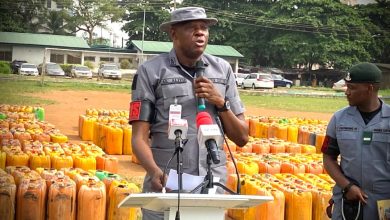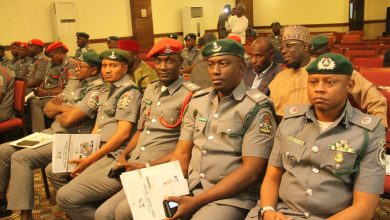Customs Deepens Trade Facilitation Reforms, Concludes Benchmarking Mission to Europe
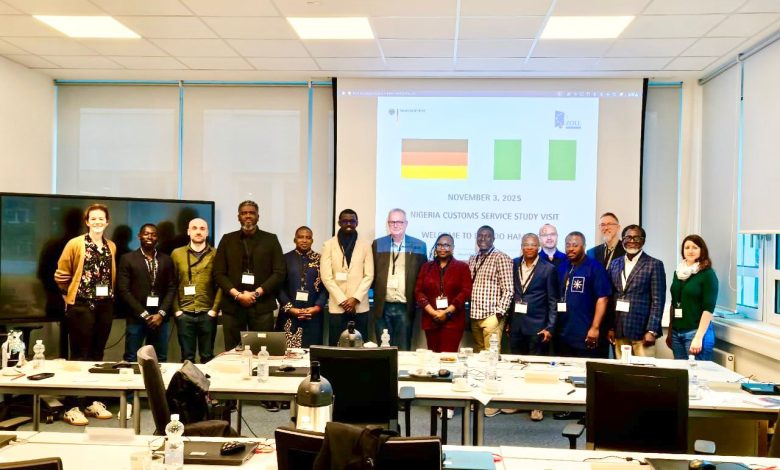
Author: Muhammad Bashir.
The Nigeria Customs Service has rounded off a week-long benchmarking and technical engagement tour across parts of Europe in a strong push to upgrade Nigeria’s trade facilitation systems in line with global standards.
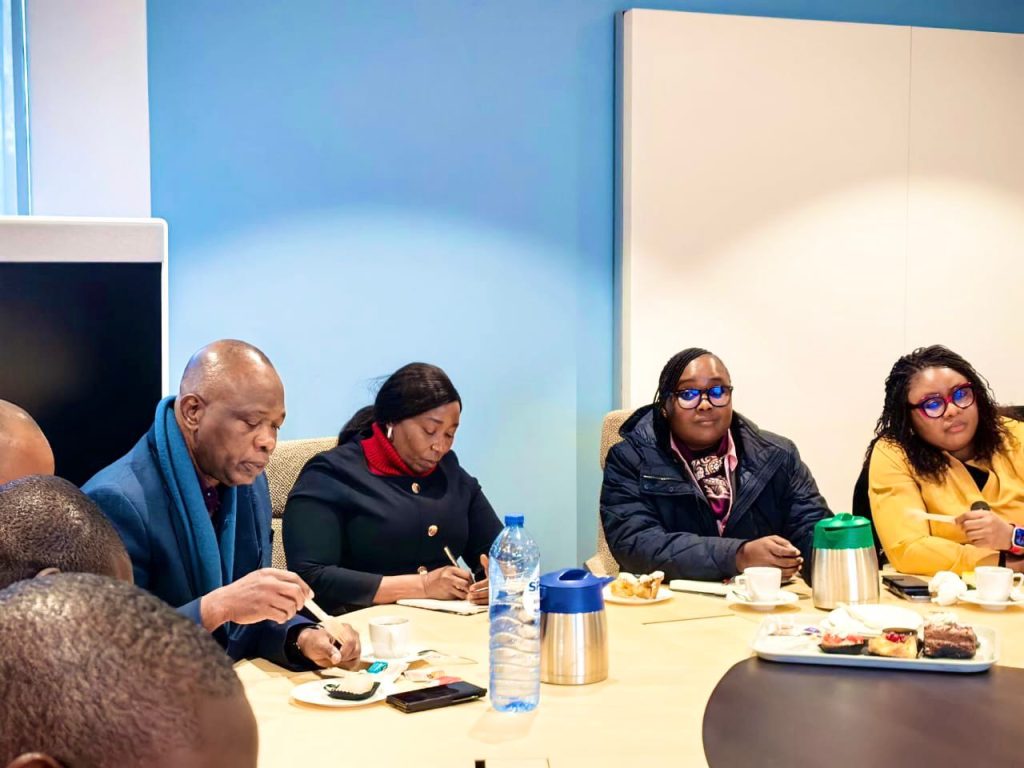
The mission, which ran from 27 October to 4 November 2025, took the delegation to Brussels, Rotterdam, The Hague, Amsterdam, Hamburg and Frankfurt, drawing in Nigeria’s Advance Ruling technical team, officials of the World Customs Organisation (WCO), the German development agency GIZ and experts in renewable energy.
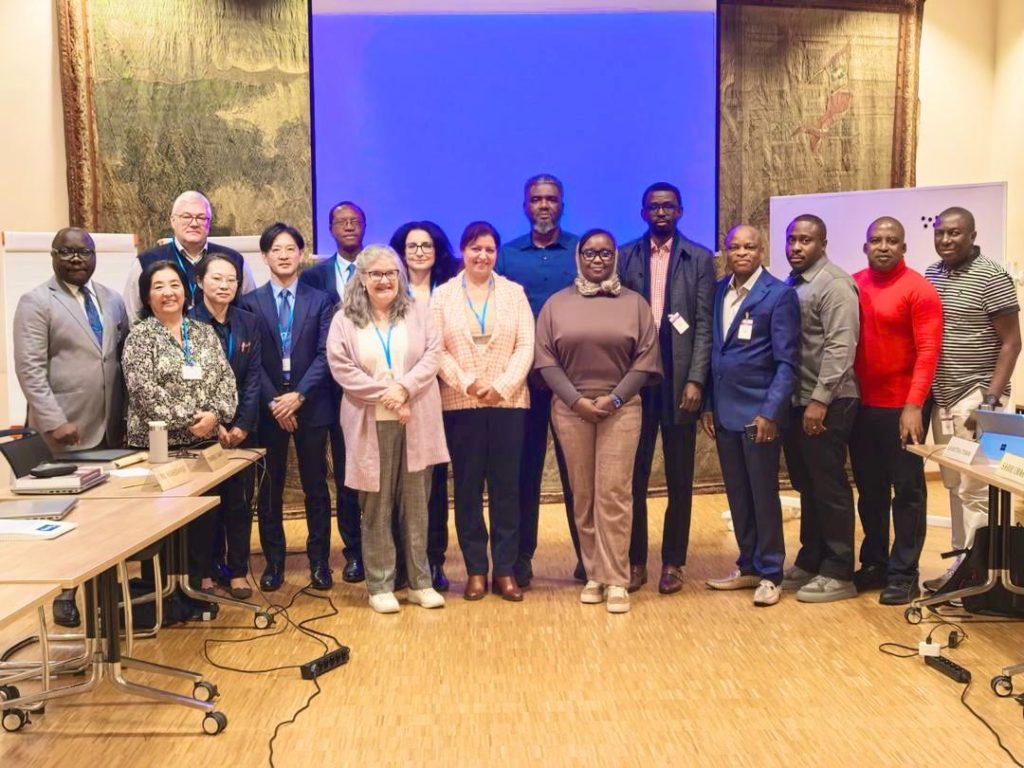
The delegation began its assignment at the WCO Headquarters in Brussels where officers underwent rigorous technical sessions on the Harmonised System (HS), complex chemical classification, renewable-energy equipment and components used in green technology.
The trainings were designed to strengthen Nigeria’s capacity to issue Advance Rulings, a tool that allows importers to obtain binding classification decisions before goods arrive in the country, thereby reducing delays and uncertainty.
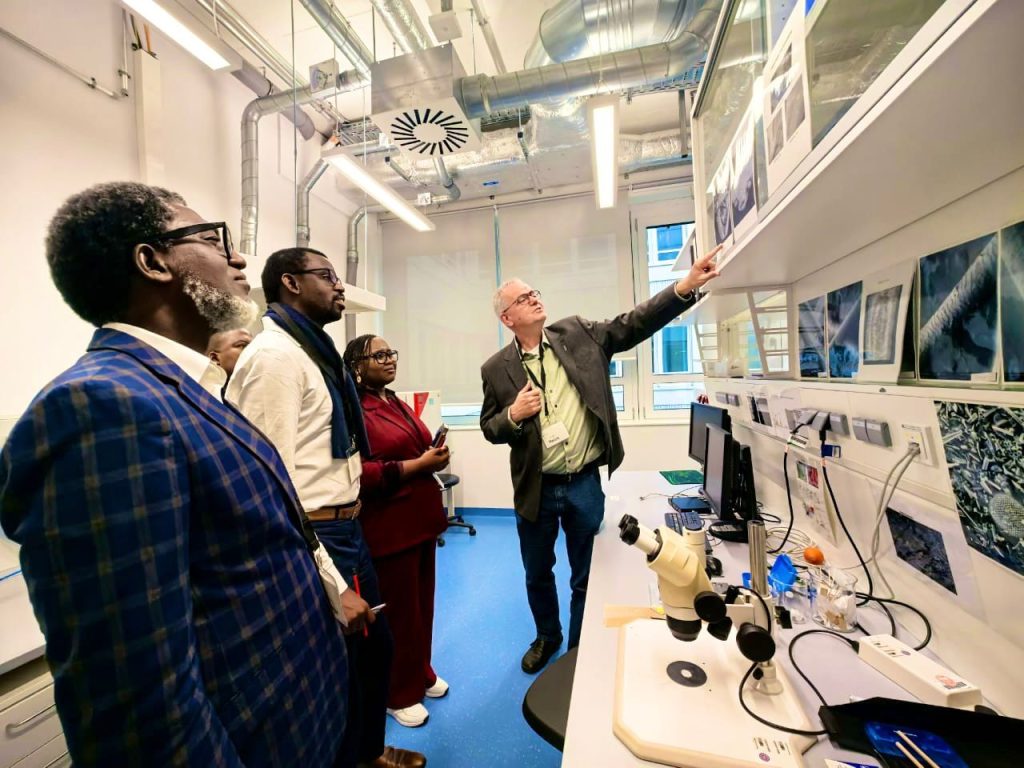
Assistant Comptroller Lauretta Utubor, team lead for Nigeria’s Advance Ruling programme, described the Brussels sessions as “a crucial step toward refining classification standards that support predictability and boost compliance.”
From Brussels, the officials moved to the Netherlands, a major centre for tariff administration and one of Europe’s strongest Binding Tariff Information (BTI) systems.
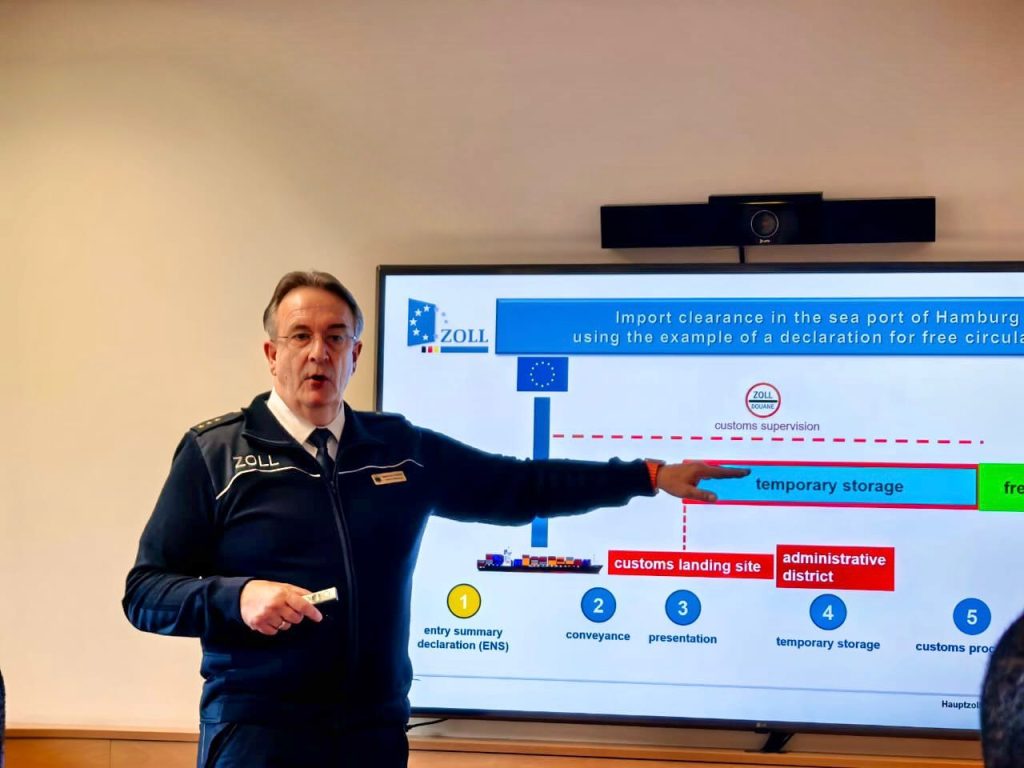
At the Dutch Customs Headquarters in Rotterdam, the National Tariff Classification Team led by Ed Tulp walked the Nigerian delegation through procedures used across the EU for tariff classification and rules of origin.
The team later received detailed briefings on risk-profiling and tactical enforcement at the Customs National Tactical Centre, where specialists explained how the Netherlands monitors cargo movement and deploys layered risk-management tools.
At Schiphol Airport, one of Europe’s busiest cargo hubs, officials demonstrated the airport’s integrated border procedures, automated cargo systems and pre-arrival clearance channels.
The delegation then proceeded to Germany, Europe’s largest economy, where officers visited several Customs formations to observe the country’s BTI regime, enforcement systems and safety-driven operational culture.
On the fourth day of the mission, the Nigerian team toured the Customs Laboratory in Hamburg, where they were briefed on testing procedures, classification techniques and compliance verification for complex goods.
The engagements continued further with a sight visit to Frankfurt Airport, where officers observed first-hand the airport’s layered cargo-screening technologies and its multi-agency coordination framework.
Despite learning from the European systems, officials also identified strengths within Nigeria’s homegrown structure. They noted, for instance, that the EU’s BTI portal does not automatically categorise ruling requests into classification, valuation or rules of origin.
Recall that Nigeria’s Advance Ruling portal was developed entirely by Customs officers and local ICT experts, and has already provided new features, giving it what officials described as an “early comparative advantage” in digital architecture.
The benchmarking visit was supported by GIZ, with technical contributions from renewable-energy researchers working with Nigeria’s classification group.
Members of the delegation included Assistant Comptrollers SD Umar and Joseph Atile, Assistant Superintendent of Customs I Joseph Adejoh from the Public Relations Unit, alongside representatives from GIZ and the Renewable Energy Association.


